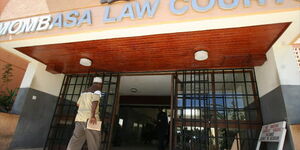The Linda Mama programme, a crucial lifeline for maternal healthcare in Kenya, is set to undergo significant changes as it transitions to the Social Health Insurance Fund (SHIF) starting October 1.
Launched in 2013 under former President Uhuru Kenyatta, Linda Mama was designed to address the high rates of maternal mortality linked to poverty by providing free maternity services in public health facilities. Over the years, it has expanded to include private facilities and was previously managed under the National Health Insurance Fund (NHIF).
Why it matters: Kenya faces a critical challenge in maternal healthcare, with one of the highest maternal mortality rates globally. According to a recent report by the United States Agency for International Development, Kenya's maternal mortality rate stands at 594 mortalities per 100,000 live births, placing it fourth highest in Africa.
The Linda Mama programme has been instrumental in tackling this issue. Data from the National Health Insurance Fund (NHIF) for 2023 highlights the programme's significant reach and impact. Over 5.2 million mothers have been registered under Linda Mama, with around 1.2 million benefiting from its services annually since its inception.
The government’s recent decision to replace the NHIF with a new social health scheme, the Social Health Authority (SHA), has raised questions and concerns among Kenyans. The SHA, which includes the Primary Healthcare Fund, SHIF, and the Emergency and Chronic Illnesses Fund (ECIF), aims to offer a more comprehensive health coverage system.
However, the future of SHA is in limbo as the Social Health Insurance Act (SHIA) 2023, which established the SHA, was recently nullified by a court ruling. This uncertainty has left many wondering whether the Linda Mama programme, a cherished initiative, will continue seamlessly.
What to Expect from SHIF
Despite the legal hurdles, Health Principal Secretary Mary Muthoni has assured the public that Linda Mama will not only continue but will be enhanced under SHIF. She emphasised that the programme would be "bigger and better," reflecting the government’s commitment to improving maternal healthcare services.
Under SHIF, several significant changes are proposed:
1. Standard Delivery Costs: SHIF will set a standard delivery fee of Ksh10,000 for normal deliveries. Previously, costs were pegged at Ksh5,000.
2. Caesarean Sections: Coverage for caesarean sections will be Ksh34,200, which includes a maximum hospital stay of three days. This represents a significant increase from the previous coverage of Ksh17,500.
3. Universal Access: Regardless of whether a mother opts for a public or private facility, the cost will be standardised at Ksh10,000 for normal deliveries and Ksh30,000 for higher-tier facilities.
4. Enhanced Coverage: SHIF will cater to complications for both mothers and babies, including postnatal care, ICU, newborn ICU, and High Dependency Unit (HDU) services. This comprehensive coverage marks a substantial improvement over the NHIF scheme.
Director General of Health Dr Patrick Amoth in an interview on Wednesday, highlighted that SHIF aims to ensure universal access to quality maternal care. For individuals who cannot contribute due to financial constraints, the government will use a proxy means test to cover the cost difference, ensuring no one is left behind.
“However, if you are not able to contribute because you are an indigent or you are vulnerable or marginalised, then through the proxy means testing, we are able to identify how much money you generate, the deficit or the difference will be paid for by the government. To ensure that you are not disenfranchised from receiving healthcare services,” stated Amoth in an interview on KTN.
Public Reaction and Future Outlook
The transition from NHIF to SHIF has sparked a mixed response. While many Kenyans are hopeful about the enhanced benefits, others remain sceptical due to the legal uncertainties surrounding the new scheme. The public's call for the return of Linda Mama highlights the programme’s significance in providing critical maternal services, especially for economically disadvantaged groups.












